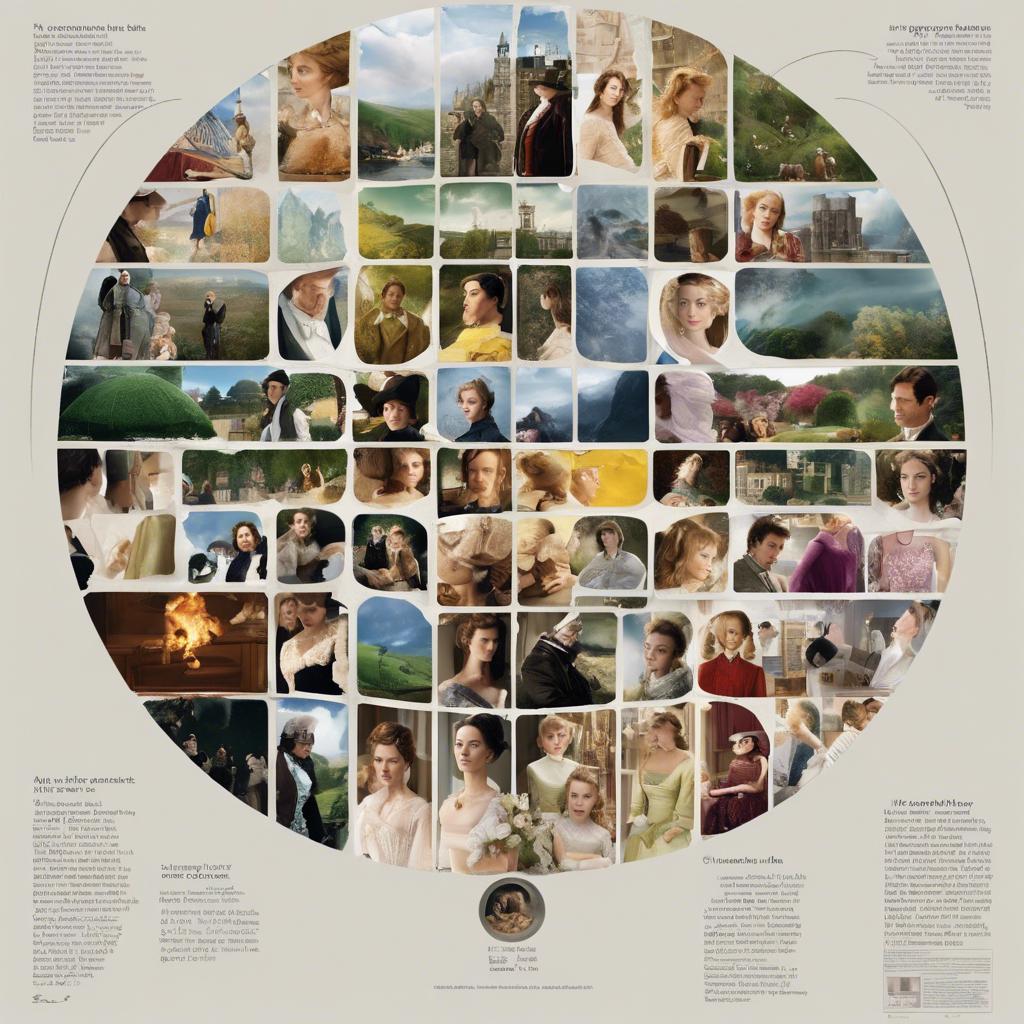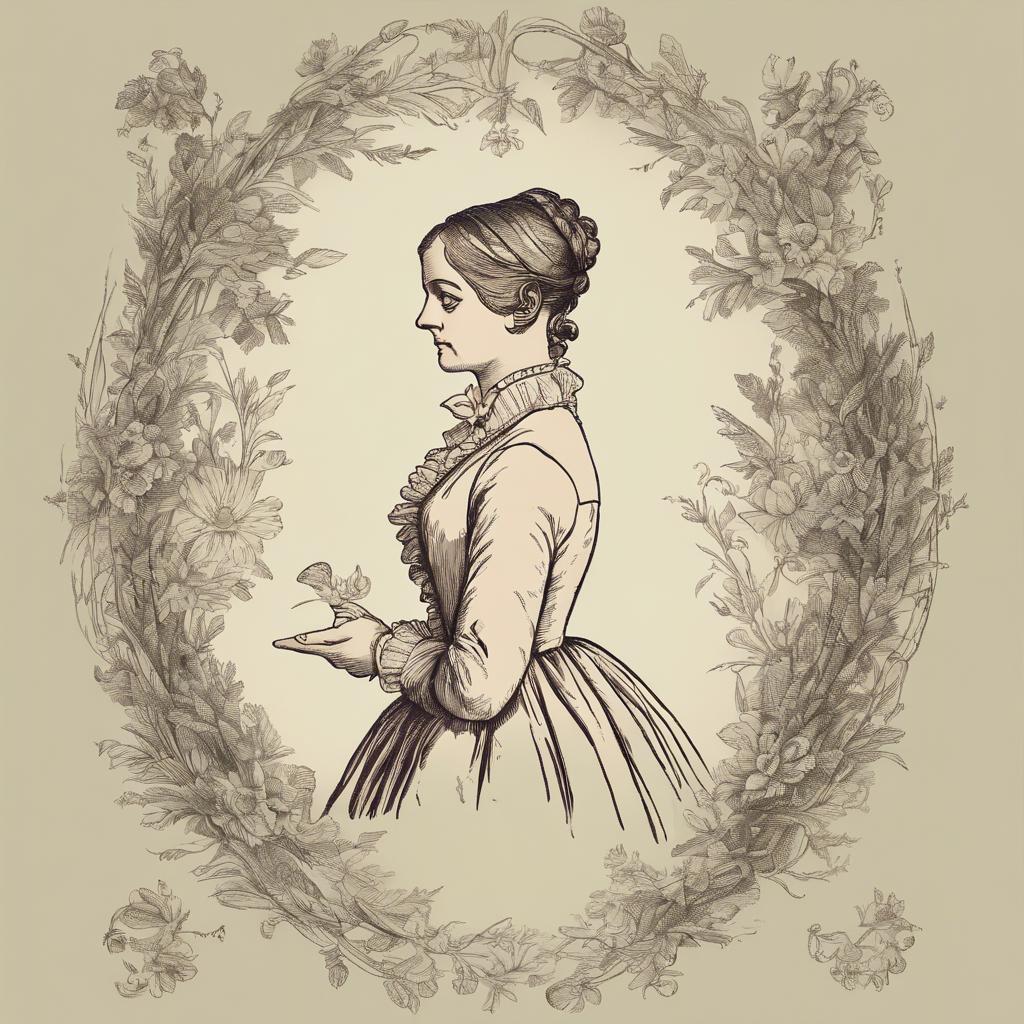In the early 19th century, amidst a backdrop of social change and political upheaval, one woman’s literary talents shone brightly, captivating audiences with her insightful portrayal of Regency-era England. Jane Austen, a revered figure in the realm of English literature, brought to life a multitude of memorable characters and intricate societal nuances through her renowned novels. Among these works, the film adaptation of her novel “Emma” stands as a testament to Austen’s enduring legacy and profound impact on the world of storytelling. Join us as we delve into the cinematic interpretation of Austen’s beloved tale of love, manners, and miscommunication in our exploration of the ”Emma” film adaptation.
Step Into the World of Cheryl Bolen
Dive into the enchanting stories of love, intrigue, and elegance set in the Regency Era. Cheryl Bolen's novels offer timeless romance and captivating tales that will leave you wanting more.
Explore Cheryl Bolen's Books Now
Overview of Emma Film Adaptations
In exploring the film adaptations of Jane Austen’s timeless novel “Emma,” viewers are treated to a rich tapestry of storytelling that illuminates the manners and societal norms of the Regency era. From the opulent ballrooms to the lush countryside estates, each adaptation brings to life the complexities of love, class, and friendship in a way that captivates audiences.
One standout adaptation of ”Emma” is the 1996 film starring Gwyneth Paltrow, which elegantly captures the wit and charm of Austen’s writing. Paltrow’s portrayal of the titular character showcases Emma’s growth from a well-meaning but misguided matchmaker to a mature young woman who learns the true meaning of love and humility.
Another memorable adaptation is the 2020 film directed by Autumn de Wilde, which infuses a modern sensibility into Austen’s classic tale. With its vibrant color palette and playful tone, this adaptation breathes new life into the story of Emma Woodhouse, offering a fresh perspective on the timeless themes of self-discovery and redemption.
Analysis of Jane Austens Influence on Emma Films
In examining the influence of Jane Austen on various film adaptations of Emma, it is evident that her timeless storytelling and vivid characterizations have left a lasting impact on the cinematic interpretations of this beloved novel. Austen’s sharp wit and keen observations of social dynamics are seamlessly translated onto the screen, capturing the essence of the Regency era with elegance and charm.
One key aspect of Austen’s influence on Emma films is the portrayal of the spirited and independent heroine, Emma Woodhouse. Through Austen’s nuanced character development, Emma emerges as a complex and endearing protagonist, whose journey of self-discovery and maturation resonates with modern audiences. Filmmakers have successfully captured Emma’s wit, intelligence, and vulnerability, bringing her to life in a way that honors Austen’s original vision.
Furthermore, the romantic relationships depicted in Emma films reflect Austen’s nuanced exploration of love, marriage, and societal expectations. From Emma’s misguided matchmaking attempts to the slow-burning romance between Emma and Mr. Knightley, these films capture the emotional depth and moral dilemmas inherent in Austen’s narrative. Through exquisite costumes, lavish sets, and nuanced performances, filmmakers pay homage to Austen’s timeless themes of love, class, and human nature.
Recommendations for Viewing Emma Adaptations
When it comes to viewing adaptations of Jane Austen’s classic novel “Emma,” there are several recommendations that can enhance your viewing experience. Whether you are a fan of period dramas or simply enjoy a good romance story, there is a version of Emma out there for you.
One of the most popular and well-loved adaptations of Emma is the 1996 film starring Gwyneth Paltrow. This adaptation stays true to the original story while adding a modern twist. The sets and costumes are beautifully crafted, transporting you back to Regency-era England. With a stellar cast and excellent direction, this version of Emma is a must-watch for any Jane Austen fan.
If you’re looking for a more recent take on Emma, the 2020 film starring Anya Taylor-Joy is a fantastic choice. This adaptation brings a fresh perspective to the story, with stunning cinematography and a standout performance from Taylor-Joy. The chemistry between the characters is palpable, making this version of Emma a captivating and entertaining watch.
Comparing Different Interpretations of Emma on Screen
Movies and TV adaptations of Jane Austen’s beloved novel “Emma” have been a popular choice for filmmakers over the years. Each interpretation brings its own unique perspective to the story, capturing the essence of the Regency era and the complex characters Austen created.
One of the most iconic adaptations of “Emma” is the 1996 film starring Gwyneth Paltrow in the title role. This version stays true to the original text, showcasing the wit and humor that Austen is known for. Paltrow’s portrayal of Emma captures her arrogance and charm, making her a compelling protagonist to watch.
In contrast, the 2020 adaptation of “Emma” takes a more whimsical approach to the story. Starring Anya Taylor-Joy, this film uses vibrant colors and elaborate costumes to bring the world of Austen to life in a visually stunning way. The updated cinematography adds a modern twist to the classic tale, appealing to a new generation of viewers.
Wrapping Up
the film adaptation of Jane Austen’s “Emma” not only captures the essence of early 19th century English society, but also serves as a faithful tribute to the timeless novel. With its meticulous attention to period detail and nuanced portrayal of the complex characters, this cinematic adaptation stands as a masterful interpretation of Austen’s work. As we continue to appreciate and analyze Austen’s enduring legacy, the film “Emma” remains a shining example of the author’s profound influence on literature and culture. Let us be reminded of the wit, charm, and insight that Austen imparted through her beloved characters, and may “Emma” continue to enchant audiences for generations to come.


